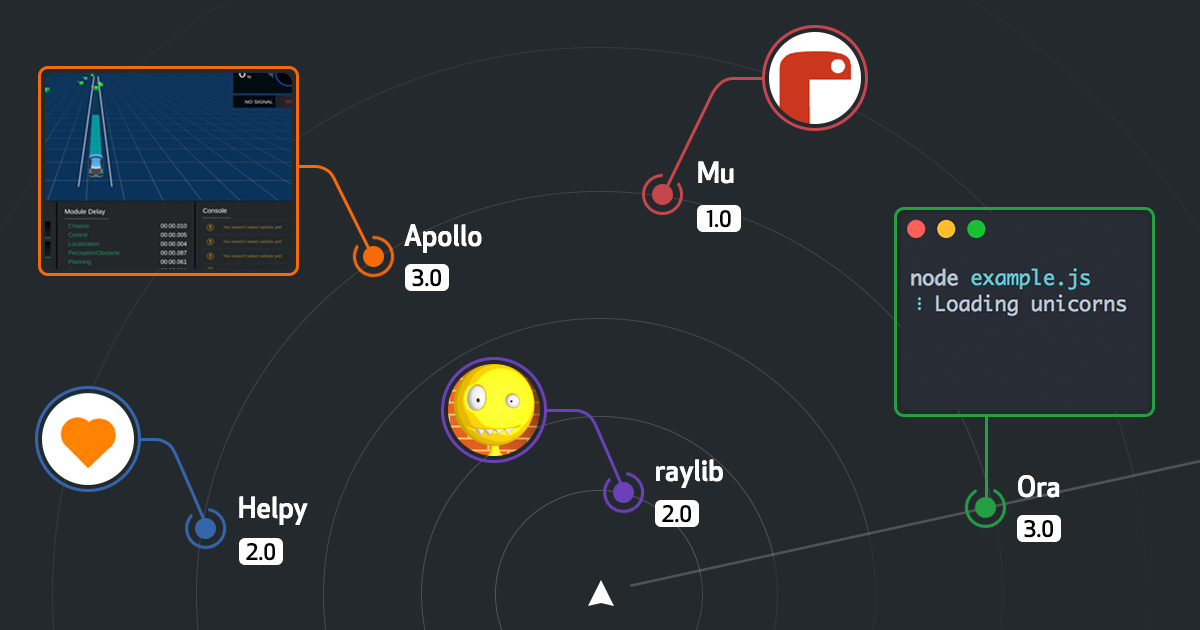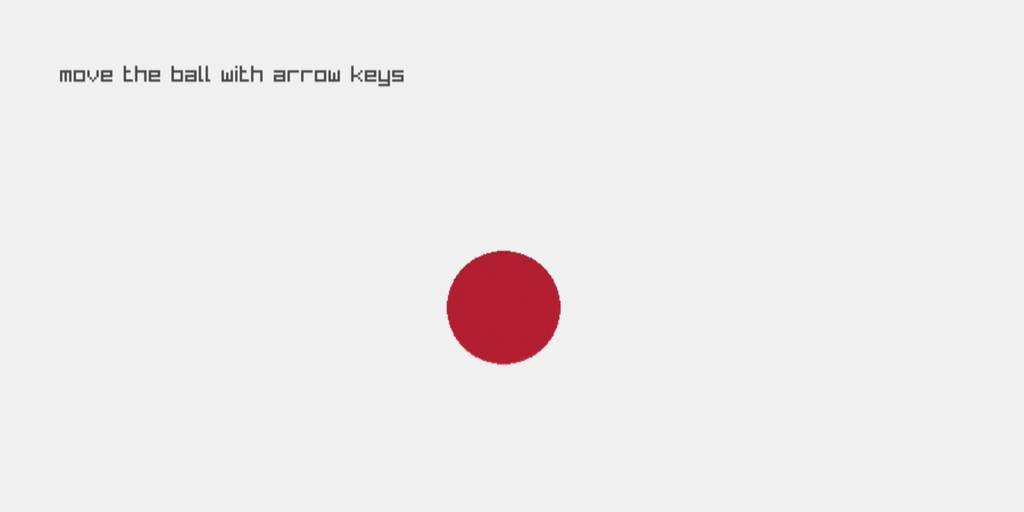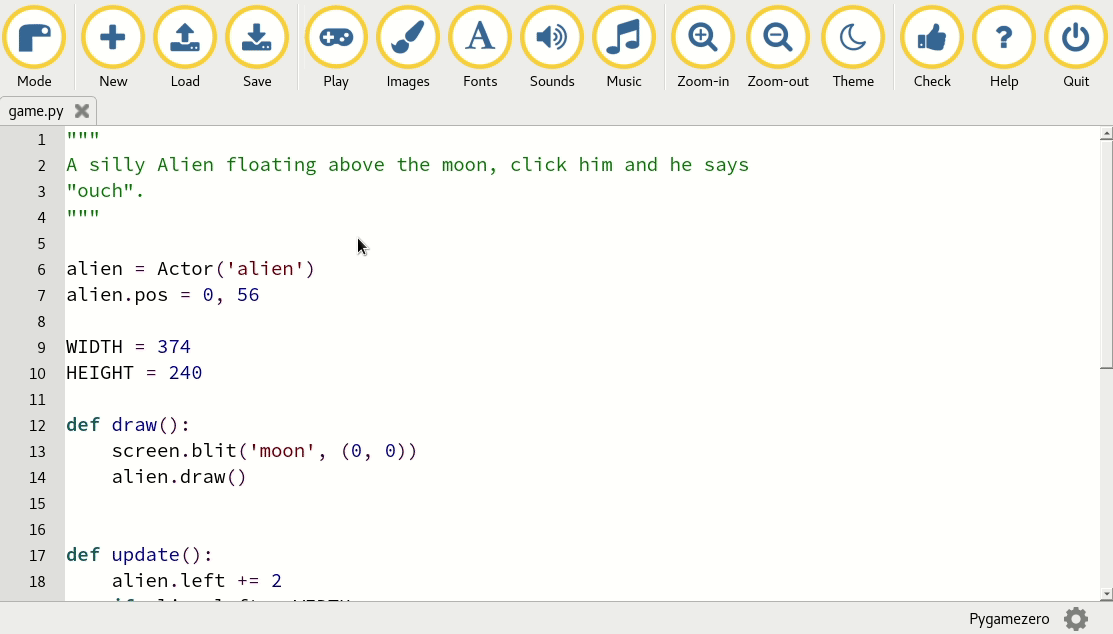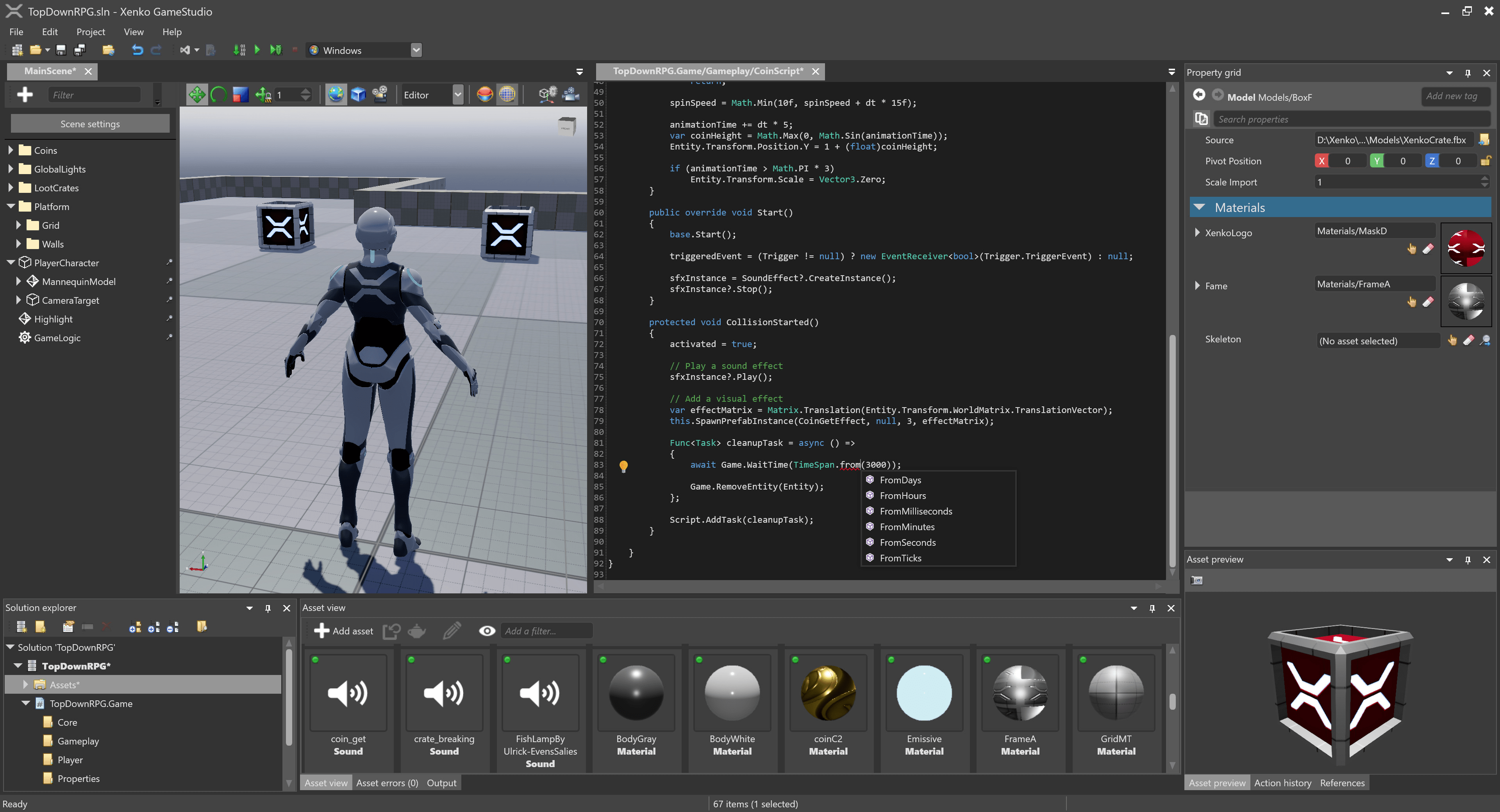Lee Reilly
Senior Program Manager, GitHub Developer Relations. Open source hype man, AI whisperer, hackathon and game jam wrangler. I write && manage programs, support dev communities, and occasionally ship something weird just for the vibes.
Open source releases that caught our attention last month.

July has come and gone, leaving a lot of exciting releases in its wake! It’s been an especially big month for people learning to program—we’re highlighting two releases that will help new programmers—but there’s something for everyone in this month’s Release Radar.
raylib is a games library designed to help people learn to make games without a large environment and tailored tools. raylib 2.0 has removed all external dependencies, increased the number of supported platforms (including BSD, Linux, and 64-bit Android), and updated the included templates and examples. Scope out the raylib 2.0 release announcement to learn more.

Did you know? raylib started as a weekend project, so Ray could help young people learn game development.
Mu is an IDE for teaching and learning Python and embedded programming. It’s designed for beginners, but anyone can use it—and with its latest release, Mu is joining the 1.0 club! Mu 1.0 improves the user interface and makes it more consistent across platforms, adds better support for line endings and encodings, and translates the app to more languages, including Spanish, Japanese, and French. Check out the Mu changelog for details.

Did you know? Mu comes bundled with a bunch of libraries, like PyGame and Matplotlib. Learning to program doesn’t need to mean learning dependency management at the same time.
ALE is the Asynchronous Lint Engine for Vim and NeoVim. The plugin provides as-you-type static analysis on your code and works with linters like ESLint and autopep8. ALE 2.0 improves the way ALE connects to servers, adds support for new linters and formatters, and fixes some bugs. See the ALE 2.0 release notes for details.
Did you know? ALE uses the Language Server Protocol which simplifies connecting editors and IDEs to language-specific tools.
Pico is a lightweight, database-free content management system. It helps you turn markdown-formatted content into the pages of your site. The latest release, version 2.0, moves configuration from PHP files to YAML, introduces new features for theme developers, and helps plugin authors and users with distribution and installation. There are some breaking changes though, so check out the Pico upgrade guide, which also goes in-depth on the project’s latest developments, before you dive in.
Did you know? In the International System of Units, the prefix pico denotes 10−12, or one trillionth. Pico, in other words, means small—really small.
Helpy is a helpdesk web application with ticketing, community forums, a knowledgebase, and more, so your customers can get help from you and each other. The project is celebrating its 2.0 release, unveiling a new admin user interface, a new theme, and changes for compliance with GDPR. Take a look at the Helpy 2.0 release on GitHub for more info.
Reactotron is a multiplatform app for inspecting your React and React Native applications. Reactotron helps you look into the state of your application, benchmark performance, and more. The latest release, version 2.0, adds support for multiple devices, a new user interface, and bug fixes. Check out the Reactotron 2.0 release on GitHub for more information.
Apollo is a platform for developing autonomous driving. The project’s roadmap aims to obviate the need for actual roadmaps by supporting fully self-driving cars. Apollo 3.0 introduces new features such as the Guardian safety module and the Apollo Sensor Unit that provide interfaces to many types of sensors like cameras and radar. This release aims to support level 4 autonomy, so that a vehicle can operate without a human driver in defined conditions and locations. Take a look at the Apollo 3.0 release notes to find out more.
Did you know? You don’t need a self-driving car to test out Apollo. There’s a simulator for that.
Ora is a terminal spinner. You can use Ora to show your users that something is happening while they wait on your Node.js command-line program. Use one of dozens of premade spinner animations, or define your own. Ora 3.0 fixes bugs and drops support for Node.js older than version 6. Read the Ora 3.0 release notes for details.
Xenko is a game engine used to create everyything from 2D games to VR experiences for multiple platforms. And as of the latest 3.0 release, it’s now free and open source. With it’s impressive list of integrated editors plus PBR materials, light probes, post effects, and next generation graphics APIs, you might want to take it for a spin on your next project or game jam.

If you’d like to contribute, pull requests—and financial contributions via Xenko’s Patreon—are welcome.
That’s just a handful of releases you shipped last month—keep them coming! If you’ve got a release that should be on our radar, send us a note.

AI agents in GitHub Copilot don’t just assist developers but actively solve problems through multi-step reasoning and execution. Here’s what that means.

In May, we experienced three incidents that resulted in degraded performance across GitHub services.

Sharpen your skills, test out new tools, and connect with people who build like you.